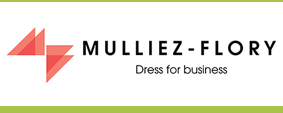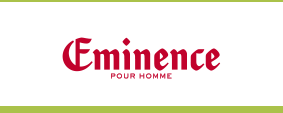The AUTONOTEX consortium is both large and balanced: 5 academic partners and 5 manufacturers (SMEs and large companies) take part in the initiative. The project rests on a network of high performing companies – large companies (MULLIEZ-FLORY, Eminence, PERCALL), innovative SMEs (NICOMATIC and TDV), laboratories carrying out leading edge research (IEMN), renowned engineering schools (ARMINES, ENSAIT), innovation and technology transfer platforms (CETI and CANOE). In other words, renowned industrial undertakings of the textile sector, well-versed SMEs in the development of innovative solutions and academic players able to turn fundamental research into functional innovation. All needed players for connected clothing production and marketing are part of the AUTONOTEX project, from the development of fibers to the production and preparation of the final product.
Mulliez-Flory
As a textile industry family group in clothing for professionals, Mulliez-Flory enjoys a unique expertise regarding the whole chain of creation, manufacturing and distribution of workwear. Located in the Cholet area for 200 years, its 750 employees have mastered this highly complex trade since most of them already worked in the textile industry before joining the Group.
Full of creativity, these experts all work together and customers to develop the product that they want in time.
Thanks to this cross-disciplinary know-how, the Group delivers an accurate and professional response to any issue related to the creation/manufacturing/distribution workwear chain.
With a wealth of experience, the Group is a reference for textile innovation; it overcame textile industry related hurdles. Mulliez-Flory has been working on tomorrow’s innovative and ingenious solutions with renowned institutions such as the CETI (European Center of Innovative Textile) and the IFTH (French Institute for Textile Clothing).
Led for 15 years by Jacques Gindre, the Group is key pillar of the family group HDM Finances. HDM is the leader of the French high end household linens market – 157 million euros in 2014. HDM has 11 outlet stores in France where customers have access to the best products, especially household linen.
Eminence
Expert in male underwear and casual clothes, Eminence has been working for men for more than 70 years. Thanks to a wealth of experience and know-how, Eminence’s stylish and quality products have become a must-have in male wardrobes.
Clothing is designed with utmost care and quality, hence Eminence’s place as reference on the French market. Each step of the production process (materials, fits, final touch) for underwear, nightwear and swimming trunks is studied with great care so that customers enjoy long-lasting comfortable articles.
As a French brand from the southern of the country, Eminence enjoys local know-how by producing underwear in the Gard area. Therefore, underwear is cut out, knitted and prepared in Aimargues and Sauve factories.
Although sobriety is Eminence’s trademark, the company still offers modern underwear to its customers and remains true to its character. A regular renewal of the collection has been a key element of Eminence’s success with all different kind of customers.

TDV Industries
TDV Industries was created in 1866 by the Coisne and Lambert families. The company was initially located Armentières, in Northern France. The whole chain of fabric production is covered within TDV factory, from raw materials (cotton and polyester) to ready-to-be-designed clothing.
TDV has taken part in the African cotton fair trade since 2005. The company has also been committed to the Agenda 21, a pioneering approach fostering the application of sustainable development-related actions to all TDV activities since 2006. Back in 2012, the company strengthened its commitment by adopting an ambitious, long termed valued CSR policy, inclusive of stakeholders and employees.
The fifth generation of Coisne and Lambert families is currently leading the company in the person of Christophe Lambert. Five representatives from both families are members of the Board of Directors.

NICOMATIC
Founded in 1976 by Paul Nicollin, the Nicomatic family group designs, manufactures and sells standard and special electrical connectors. The Group employs 300 people in 10 subsidies; the head office is located at Bons en Chablais in the Haute Savoie area. 82% of its 30 million-euro turnover comes from exporting its products.
Nicomatic is a renowned player in connector technology at micro-level; its products are primarily sold for use in harsh environments – military zones, aeronautics and space. All Nicomatic processes meet the EN9100: 2009 standard.
Thanks to a fully integrated circuit, Nicomatic designs and manufactures all its products. The company invest 20% of its turnover in R&D activities – especially connector development for printed textile and circuits.
In order to meet tomorrow’s challenges with its customers while setting a fulfilling environment for its employees, Nicomatic has been committed to a responsible and learning approach to remain a dynamic company.

PERCALL
Services Company Computer Engineering (SSII) established in 2000, Percall is specialized in PLM & IoT systems integration for large High Tech industries: Aerospace and Defense, Automotive, Electromechanics and Electronic precision.
Recognized as strategic partner by PTC (worldwide provider of technology platforms and applications for company), Percall gained a significant influence on the French and European PLM markets- especially Switzerland, Italy, Austria, Spain and UK.
Percall now gathers more than 220 experts in the PLM industry.
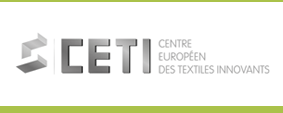
CETI
The European Center of Innovative Textile is a shared platform for innovation. It offers an exceptional combination of skills, tools and textile technological equipment.
It is about companies seizing opportunities to benefit from the best textile innovations – textile materials, new fiber technologies and non-woven fabrics- and rethink their products.
Players can find on the platform research solutions, prototypes and pre-production models so that an idea becomes a functional product more easily; hence the added value of the CETI.
Source of innovation, vector of creativity, leading researcher, the CETI is the place to be for conception, experimentation and development of new products well suited to tomorrow’s economy and needs.
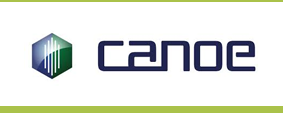
CANOE
CANOE is a technology transfer platform meant to support local economic development. SMEs and large companies can find shared human and material resources within the organic composites and advanced materials sectors – especially areas the Aquitaine region prioritizes, such as aeronautics, transport (automobile and sailing), and renewable energy (photovoltaic plants, wind energy and sustainable chemistry).
Located in Bordeaux and Pau, the platform was founded in 2008 on the Aquitaine Regional Council’s initiative. It enables the conception of innovative prototypes during pilot action when CANOE intervenes as a service provider or takes part collaborative research projects. Thanks to the sharing of resources, the whole value chain of composite material is covered, from conception to development and from characterization to industrialization.
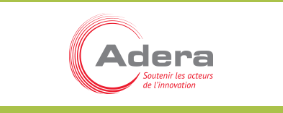
ADERA
CANOE regularly works with ADERA. ADERA promotes research laboratories’ skills and foster technology and innovation transfer between towards companies in Aquitaine and Limousin-Poitou-Charentes regions.
Given the administrative, legal and financial complexity of such programs, ADERA provides experience, human and technical resources for research and innovative project writing and management.
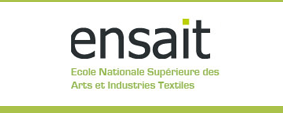
ENSAIT
The National College of Textile and Industry (Arts Ecole Nationale Supérieure des Arts et Industries Textiles) is located at the heart of the dynamic Roubaix metropolis. More than 150 future engineers a year are trained to be tomorrow’s main players of textile industries – namely technical textile, advanced materials, distribution, fashion and luxury.
Teaching staff’ skills and the high level of the ENSAIT’s research laboratory are key elements of an excellent training. The quality of ENSAIT’s courses is widely renowned among textile industry structures, where young graduates go pursue fulfilling careers. French and International companies hire ENSAIT engineers.
The College is dedicated to ensuring that students are learning in the best conditions; future engineers may enjoy diverse extracurricular activities.
The GEMTEX research laboratory on textile material engineering (Génie des Matériaux Textiles) is a propriety of ENSAIT. Its research activities are divided in three themes – namely Human Centred Design, Multifunctional Textiles and Processes and Mechanics Textile Composite. All three are closely interconnected with each other.

IEMN
The Institute of Electronics, Microelectronics and Nanotechnology (Institut d’Electronique, de Micro-électronique et de Nanotechnologie) was founded in 1992 on the three regional partners and one national player’s initiative: the University of Lille, the University of Valenciennes and Hainaut Cambrésis, ISEN Lille (The National Institute for Electronics and Digital) and the National Center of Scientific Research.
The creation of the Institute enables to gather in the same laboratory complementary disciplines to boost progress in electronics and acoustics areas. Thanks to its pioneering cross disciplinary approach and a knack for intellectual exchange, the IEMN is in the best position to improve the state of knowledge across the scientific spectrum, from physics theories to telecommunications.
20 years later, the IEMN has become a dynamic major player who doubled its staff and multiplied by four its budget. More 500 people now work together in all scientific areas of information communication technology, as well as micro and nano-technologies. The IEMN greatly contributes to education through the formation of 16 PhD students; the Institute also proposed a large range of Master’s degrees- 30.
The laboratory’s scientific strategy rests on a network of working groups. Said groups focus on excellence themes; they also carry out research on emergent activities corresponding to the main 5 scientific IEMN themes:
- Materials and Nanotechnology
- Micro and Nanosystems
- Micro/Nano/Optoelectronics
- Communication system
- Acoustics
The IEMN carries out collaborative research projects with companies or other structures as well as disruptive innovation projects – both contribute to the virtuous circle of intellectual renewal and research topics. Regular support from the Nord-Pas de Calais region enabled the IEMN to be equipped with exceptional technology infrastructures and platforms when supporting researchers:
- Power station for micro and nano-systems fabrication
- Power station for high frequency devices characterization and electromechanical micro systems
- Near field communication platform
- Telecommunication platform
Member of the Research on Basic Technologies Network, the IEMN provides a high level technical platform to the academic and industrial community – hence the Institute’s position as one of the best in Europe. The IEMN’s partners also benefit from the Institute’s unrivaled expertise in methods and processes – a 20-year knowledge. The IEMN’s policy aims at deepening the state of knowledge and increase economic benefits at regional, national and European level through several industrial partnerships.
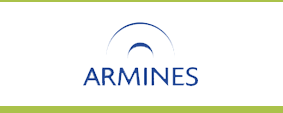
ARMINES
The concept of industrial oriented research is at the heart of the creation of ARMINES in 1967; therefore, the main goal today remains to direct research and formation towards industries.
Under the supervision of the French Ministry for Economy, Industry and Digital Technology, ARMINES shares this mission with partner schools especially the Ecole des Mines.
ARMINES is now involved in more than 800 partner research contacts; half of its 45 million-euro turnover derives from bilateral work with companies. More than 130 highly skilled PhD students contribute to socio-economic progress within the 48 Ecole des Mines -ARMINES institutes and schools.
MINES Paris Tech Center for Materials and the MINES Provence Saint Etienne Center for Microelectronics take part in the AUTONOTEX project.
MINES Paris Tech Center for Materials is a research and learning center founded in 1967 in Evry (in the Essonne area, France) on the MINES Paris TECH aircraft engine manufacturer SNECMA’s initiative (now SAFRAN Group). 190 worked for the center in 2016 – among them 30 lecturer-researchers, 50 engineers/technicians/administrative staff and 90 PhD students. The Center carries out research activities on all material with potential industrial use.
The Center taught and trained more 500 engineers and doctors of science who now mostly work for companies; the three missions it carries are complement each other hence the widely the good reputation of the Center.
Last but not the least, the Center for Materials is involved in scientific popularization and enhancement of social openness through offering job-shadowing opportunities to ninth grade students and the organization of open day for ten grade students. MINES Paris Tech is in charge of these activities.
MINES Provence Saint Etienne Center for Microelectronics’ research topics are:
- Flexible and stretchable electronics
- Safety relevant embedded systems
- Bioelectronics
- Logistics
105 people work for the Center, 38 on permanent contracts among them: 22 lecturer-researchers, 5 AEC staff members (Atomic Energy Commission) 11 administrative/technical staff and 57 PhD students and post-doctoral students.
The Center’s expertise enables optimization of operational research on industrial engineering, circuit safety material, ink jet printing on connected devices flexible supports and the connection between life sciences and organic electronic.

Prestataire IMT
The Living laboratory “Autonomous Information “ (Info-Autonomie), a MINES Telecom Institute structure takes part in AUTONOTEX as a service provider.
The laboratory was meant as comprehensive tool to ensure:
- The conception of products and services with patients, medical staff and doctors. They also take part in their implementation, monitoring and regular re-evaluation
- A dialogue between all relevant players in the heath, social, medical and industrial sector
- Case handling by specialized experts and professional staff well trained in new methods
- A multidimensional evaluation based on functional autonomy standardized tools and special users’ needs. The evaluation is both shared and recognized by the structures ensuring access to services
- The implementation of a shared information system for common procedures regarding patient related-information sharing. The system is quite resilient and meets the necessary safety requirements
The laboratory also enables:
- The common design of technological solutions (equipment, sensors, software…) or services
- The validation of the technical and ergonomic features of solutions
- Carrying of tests and exploitation of results
- Works on business models and value chains
- Work hosting for third parties or within the framework of collaborative projects
A presentation, demonstration and learning platform for autonomy oriented products and services.

Prestataire PNO
PNO is an independent grants and innovation consultancy, providing full services throughout Europe since 1984. With more than 30-year experience in collaborative project writing and management, the company is the European leader of the market. Its position has been reinforced by the acquisition E&Y and Deloitte’s Grants & Incentives departments in Belgium and in the Netherlands.
The company combines an understanding of the dynamics of its customers’ activities and ambitions regarding innovation and investments with insights into key societal issues that are supported by government funding. PNO reduces the customers’ workload, increase their return on investment and shorten the time to market.
PNO provide services throughout Europe to a wide range of clients- from SMEs to multinational companies, non-profit organizations, technological platforms, multi-stakeholder partnerships, universities and governments. To help each type of organization reach its goals the company, 350 in-house specialists in a wide variety of fields across 12 countries:
- public and private finance
- innovation
- life sciences & health, logistics & transport, energy, chemistry and many more
- tax, legal and administrative specialists.
